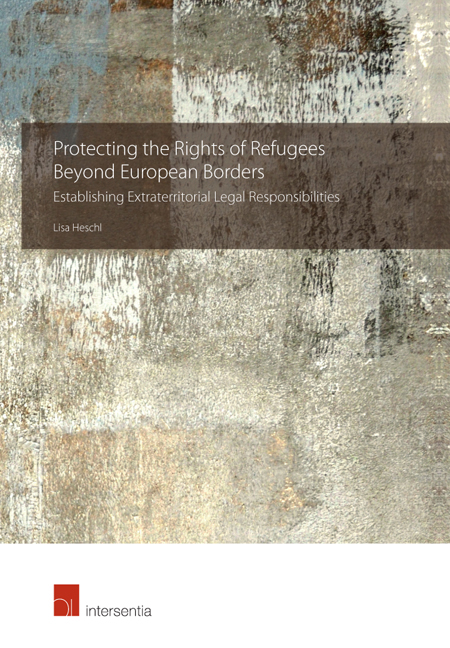 Protecting the Rights of Refugees Beyond European Borders
Protecting the Rights of Refugees Beyond European Borders Book contents
- Frontmatter
- Dedication
- Preface
- Acknowledgements
- Contents
- Table of Cases
- Table of Treaties, Instruments and Legislation
- List of Abbreviations
- Chapter 1 Introduction
- Chapter 2 The External Dimension of the European Migration and Asylum Policy
- Chapter 3 Extraterritorial Immigration Control Measures by EU Member States
- Chapter 4 Extraterritorial Immigration Control Measures by Frontex
- Chapter 5 Summary of Findings and Conclusions
- Bibliography
- Index
- About the Author
Chapter 1 - Introduction
Published online by Cambridge University Press: 12 October 2018
- Frontmatter
- Dedication
- Preface
- Acknowledgements
- Contents
- Table of Cases
- Table of Treaties, Instruments and Legislation
- List of Abbreviations
- Chapter 1 Introduction
- Chapter 2 The External Dimension of the European Migration and Asylum Policy
- Chapter 3 Extraterritorial Immigration Control Measures by EU Member States
- Chapter 4 Extraterritorial Immigration Control Measures by Frontex
- Chapter 5 Summary of Findings and Conclusions
- Bibliography
- Index
- About the Author
Summary
BACKGROUND
The spectre of ‘crisis’ is haunting the European Union (EU). The ‘economic and financial crisis’ hitting the European continent in 2008 was followed by the ‘ Euro crisis’ and the ‘debt crisis’. The ‘migrant and refugee crisis’, fuelling the ‘border crisis’ and the ‘Schengen crisis’, revealing the ‘solidarity crisis’ and ultimately leading to the ‘humanitarian crisis’ due to the large numbers of people arriving in Southern Member States (MS) of the EU continue the unabated crisis rhetoric. For it is a rhetoric in the first place.
The Oxford Dictionary defines ‘crises’ as ‘time[s] of intense difficulty when difficult or important decisions must be made.’ According to the European Union External Action Service (EEAS), ‘[e]merging and acute crises require swift responses, not only to alleviate human suffering, to avoid or prevent further escalation and instead strive to promote dialogue, reconciliation and reconstruction ….’
The present book was sparked by the responses made and approaches adopted to counter the so-called ‘migration and asylum crisis’, which reached its peak in 2015, but, in fact, has already been conjured at the European policy level since the beginning of the 1990s. Responses to crises often create a state of permanent exception, and crisis rhetoric legitimates measures that under ‘normal’ circumstances might have been unthinkable. Political decisions in the field of migration and asylum tend to be driven by emotional, populist and fear-induced considerations. Approaches based on empirical data and long-term analysis are rather an exceptional occurrence. The more than one million migrants and persons in search of international protection who have crossed into the EU, mainly by using the Mediterranean route to Greece or Italy in 2015, revealed the shortcomings of the common European migration and asylum policy, as it has developed since the entry into force of the Treaty of Amsterdam. On a more profound level, the migrants arriving on Europe's shores also proved to be the ‘stress-test’ for the European project, showing the frailty of cohesion and solidarity among MS. The resurgence of unilateral policies by a considerable number of MS and the rhetorical and political focus on national sovereignty is symptomatic of the perceived failure of the Union to establish a Europe fortified by impermeable and militarised external borders.
- Type
- Chapter
- Information
- Protecting the Rights of Refugees Beyond European BordersEstablishing Extraterritorial Legal Responsibilities, pp. 1 - 12Publisher: IntersentiaPrint publication year: 2018


